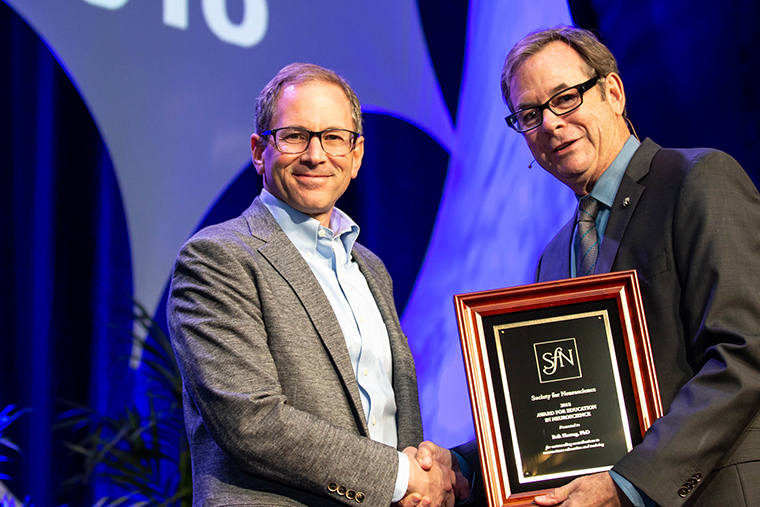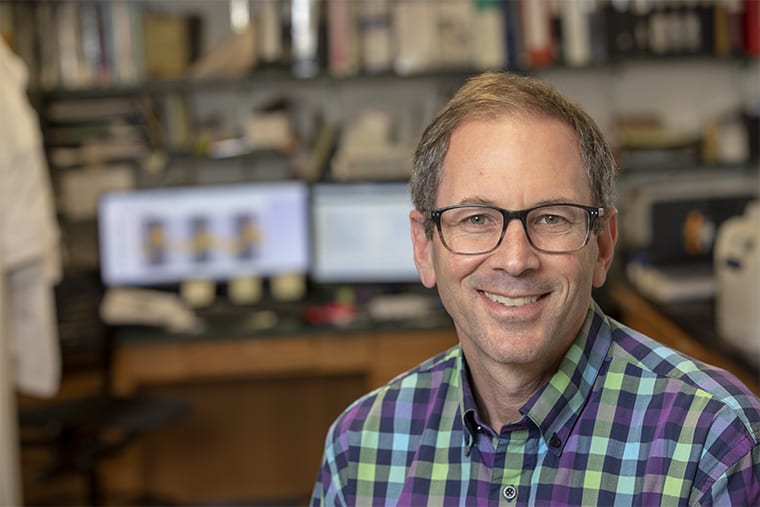Feeling a bit lethargic this week? It may have to do with the recent time change and a disruption to biological rhythms.
Erik Herzog, professor of biology in Arts & Sciences and a frequent voice of reason on this topic, said that sticking with standard time makes public health sense.
Time is what makes this scientist, well, tick. Herzog’s research is part of a growing body of work that shows the many ways in which circadian rhythms are central to human health and well-being.
He is also a gifted teacher and mentor. In honor of his work as principal investigator and director of the St. Louis Neuroscience Pipeline Program, and in recognition of more than 18 years of excellence in teaching at Washington University in St. Louis, Herzog recently received the Award for Education in Neuroscience by the Society for Neuroscience, the world’s largest organization of scientists and physicians focusing on the study of neuroscience.

A secret back door
For the past 18 years at Washington University, Herzog has shared his passion for neuroscience with students, developing a selective and popular undergraduate neuroscience track for upper-level undergraduates majoring in biology.
He has served as major adviser to more than 110 biology majors and mentored 52 undergraduates, seven graduate students and 11 postdoctoral fellows in their research efforts in his laboratory.
But he did not always want to teach neuroscience. As a child and through his undergraduate days at Duke University, Herzog wanted to be a marine biologist.
